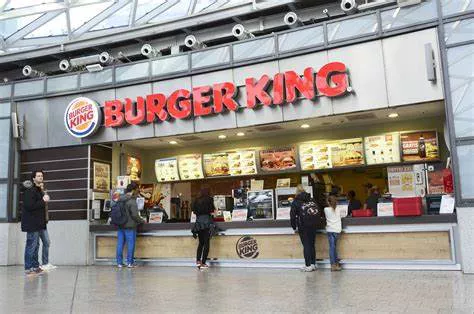Burger King, the global fast food giant, is renowned for its signature Whopper burger and a broad range of products that cater to a diverse clientele worldwide. The brand operates on a franchise model, a common approach in the fast food industry, allowing for rapid expansion and localized management. This article explores the extensive network of Burger King franchises, focusing on identifying who owns the most Burger King franchises, the strategies these owners employ, and how their ownership influences the brand’s global footprint and operational dynamics.
Understanding Burger King’s Business Model
Burger King was founded in 1954 in Miami, Florida, and has since grown to become the second-largest hamburger chain in the world. As of the latest reports, Burger King boasts over 18,000 outlets in more than 100 countries. Nearly all of these outlets are owned and operated by franchisees, which is pivotal to Burger King’s business strategy. The franchise model allows Burger King to expand its global reach while minimizing corporate risk and capital investment.
The Franchise System
Under the franchise model, individual franchise owners, or franchisees, operate Burger King restaurants. These owners are responsible for many aspects of the business, including hiring staff, purchasing supplies, and daily operations, while adhering to the standards and guidelines set by Burger King. In return, Burger King charges franchisees initial franchise fees, ongoing royalties, and advertising fees.
Major Franchise Owners
Determining who owns the most Burger King franchises involves looking at several large players who dominate the franchising landscape. Here are some of the largest franchise owners:
1. Carrols Restaurant Group
Carrols Restaurant Group is the largest Burger King franchisee not only in the United States but globally. Established in 1960 and headquartered in Syracuse, New York, Carrols owns and operates over 1,000 Burger King restaurants across 23 states. The company has a unique relationship with Burger King Corporation, characterized by an exclusive Right of First Refusal Agreement in 20 states, which allows it to expand continually by acquiring additional franchises.
2. GPS Hospitality
GPS Hospitality is another major player in the Burger King franchise network. Founded in 2012 and based in Atlanta, Georgia, GPS Hospitality operates around 400 Burger King outlets across 11 states. The company is known for its rapid growth and strategic acquisitions, quickly becoming one of the largest franchisees in a relatively short time span.
3. Restaurant Brands International (RBI)
While not a franchisee, it is important to mention Restaurant Brands International, the parent company of Burger King since its acquisition in 2014. RBI is one of the largest quick-service restaurant companies in the world and also owns Tim Hortons and Popeyes Louisiana Kitchen. Although RBI does not directly own Burger King outlets, its policies and strategies significantly influence all franchise operations.
Franchise Ownership Trends
The ownership of Burger King franchises reflects broader trends in the fast-food industry, including consolidation among franchisees. Larger franchisees like Carrols and GPS have been actively acquiring smaller franchise operators, a trend driven by economies of scale and operational efficiencies. This consolidation allows major franchisees to invest in technology, marketing, and new product development, benefiting from bulk purchasing discounts and streamlined management practices.
Challenges And Opportunities for Franchisees
Owning a Burger King franchise offers both significant opportunities and formidable challenges:
Opportunities:
Brand Recognition: Burger King’s strong global brand offers franchisees instant recognition and customer trust.
Corporate Support: Franchisees benefit from extensive training, marketing campaigns, and operational support provided by Burger King.
Economies of Scale: Large franchisees can reduce costs through bulk purchasing and centralized administrative functions.
Challenges:
Market Competition: Franchisees must compete with other fast food outlets and quick-service restaurants, often in saturated markets.
Regulatory Compliance: Franchisees need to comply with local and international regulations, which can vary significantly by region.
Capital Requirements: Opening and maintaining Burger King franchises require substantial capital investment, which can be a barrier for smaller operators.
The Impact of Franchise Ownership on Brand Evolution
The role of large franchisees in shaping the Burger King brand cannot be overstated. Their ability to adapt to local market conditions and consumer preferences has been crucial in maintaining the brand’s relevance and competitiveness.
Furthermore, their feedback influences corporate decisions on menu offerings, marketing strategies, and operational improvements.
see also: Burger King Franchise
Conclusion
In conclusion, while Burger King operates predominantly under a franchise model, the majority of its franchises are owned by a relatively small group of large franchisees, with Carrols Restaurant Group leading the pack by a significant margin.
These large franchise operators play a crucial role in the brand’s strategy, operational efficiencies, and adaptation to market changes. As the fast food industry continues to evolve, the dynamics of franchise ownership and its implications for global brands like Burger King will remain areas of strategic importance and interest.

